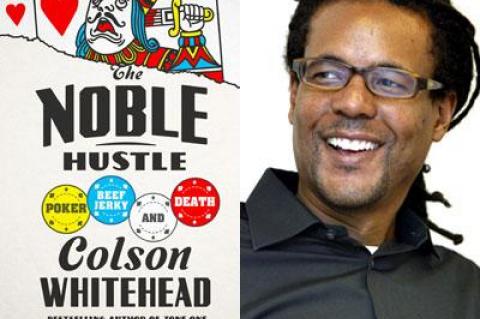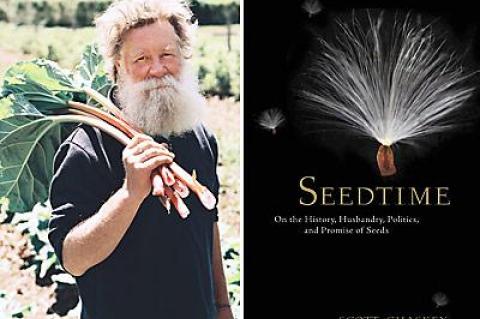The Amazon vs. Hachette Book Group dispute, which is making headlines across the country as authors, bloggers, and angry customers speak out against the Internet giant, is also affecting the East End, which has a robust community of writers, many of them published by Hachette.
Books
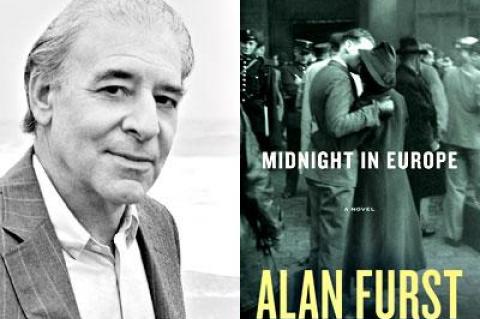 On the Edge of History
On the Edge of History“Midnight in Europe”
Alan Furst
Random House, $27
Nearly 75 years later, there are no doubt people who imagine that Europe suddenly awoke on a Sept. 2 morning and found itself at war (again), Germany having invaded Poland the day before. Logic and historians tell us, however, that World War II did not ignite spontaneously. It came after a long, ominous buildup and with a great deal of foreshadowing in the form of various struggles between republicanism and fascism — most notably the Spanish Civil War, waged between July 1936 and March 1939.
 The Hamptons Writ Large, Very Large
The Hamptons Writ Large, Very LargeIn recent years Michael Shnayerson has chronicled the most significant stories on the South Fork for Vanity Fair, from the neutron bombshell of the former Hummer magnate Ira Rennert’s 100,000-square-foot Fair Field estate landing in the Sagaponack dunes to the land-grab lawsuit against the centuries-old White farming family in that village.
 Long Island Books: Bearing Witness
Long Island Books: Bearing WitnessPart history, part distillation of the memoirs of Primo Levi, Aharon Appelfeld, Tadeusz Borowski, and others — Matthiessen has constructed a meditation on the “incipient evil in human nature” and our capacity for forgiveness.
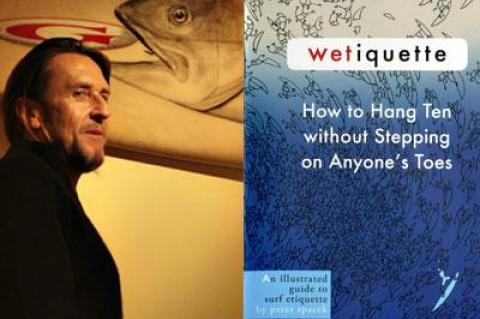 An Emily Post for Surfing
An Emily Post for Surfing“Wetiquette”
Peter Spacek
Ditch Ink, $8.95
You have purchased a brand-new surfboard. It’s set you back about $1,000, but for years you’ve wanted to learn how to surf. “It’s on my bucket list,” you’ve told your friends.
So, here goes. You’ve successfully taken the board, enshrouded in its protective bag, down off the car rack. You begin taking the board out of the bag in the parking lot, but notice the look of annoyance on the face of the surfer waiting to pull into the spot next to you. The surf is good. He’s hot to get in the water.
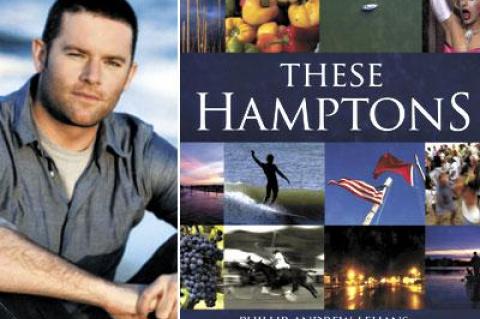 All Without a Single Cat
All Without a Single Cat“These Hamptons”
Phillip Andrew Lehans
Schiffer, $50
A number of years ago, a friend from the publishing world was complaining about the sorry state of the book business. It wasn’t really his spring selection that annoyed him, but rather his audience of readers who most disturbed him.
The Artist in Wartime
So how many former art school deans do you know who were present when the Allies stormed the beaches at Normandy? Here’s one in your backyard: Alex Russo, once of the Corcoran College of Art and Design in the nation’s capital, still professor emeritus at Hood College in Frederick, Md., and on Saturday alighting at Guild Hall to read from his new book, “Combat Artist: A Journal of Love and War.”
30 Years of Fridays at Five
Always a highlight of the summer season for those who enjoy quaffing chardonnay from plastic tumblers while listening to a top author read, the Fridays at Five series at the Hampton Library in Bridgehampton is now ready to mark its 30th year.
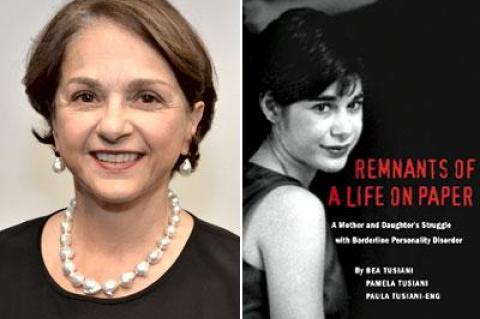 In the Maw of the Dragon
In the Maw of the Dragon“Remnants of a Life
on Paper”
Bea Tusiani, Pamela Tusiani,
and Paula Tusiani-Eng
Baroque Books, $28.95
“Building the Uqbar Dinghy”
The last time Redjeb Jordania spoke at the East Hampton Library, it had to do with his 2012 memoir, “All My Georgias.” The history there is that his father was the first president of that country, and his family fled to France in 1921 in the face of Soviet occupation.
And now for something completely different from the Springs resident: On Saturday he’ll lead a discussion of his new book, “Building the Uqbar Dinghy,” which refers to a pram-nosed craft of his own design and construction. It starts at 1 p.m.
From Hannibal to Steinbeck
It’s a digital jungle out there, writers, and Ed Hannibal, who recently saw two of his novels, “Chocolate Days, Popsicle Weeks” and “A Trace of Red,” reissued as e-paperbacks through the Authors Guild BackinPrint program, will offer guidance for those seeking to find their way tomorrow at 6 p.m. at Canio’s Books in Sag Harbor. Mr. Hannibal, who lives in Springs, is also heading up a workshop, the ABCs of Creative Writing, on Wednesdays at the Amagansett Library.
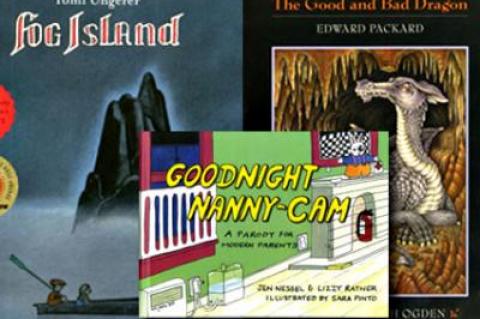 Long Island Books: Fear Not, You Kids
Long Island Books: Fear Not, You KidsI don’t know what a wipe warmer is, but it sounds like something I’d like to try.
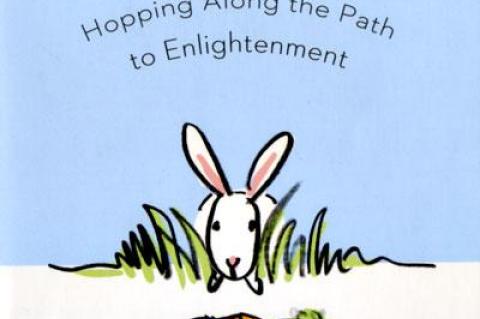 Four-Legged Enlightenment
Four-Legged EnlightenmentWhiskers, a triangle of pink, a couple of floppy ears: Nosing into your periphery in time for Easter, yet incongruously attuned to an altogether different ancient teacher, comes “Bunny Buddhism: Hopping Along the Path to Enlightenment” (Perigee, $14), Krista Lester’s book of snippets of wisdom to help get you through your day.
Here’s a date to thumb into your e-calendar. Friday, April 25, will mark the first of what is planned as an annual benefit and reading, the Poetry Affair, at LTV Studios in Wainscott to mark, in turn, National Poetry Month.
 The Barrier Beach Blues
The Barrier Beach Blues“Fire Island: Past, Present,
and Future”
Robert F. Sayre
Oystercatcher Books, $24.95
Robert F. Sayre, a retired English professor from Iowa, had the pleasure of spending his summers from childhood onward at the family house in Point O’ Woods on Fire Island. From this long-term, personal experience, he gained a valuable perspective about this roadless island that is accessed by pedestrian ferry boats from the mainland of Long Island.
Now that spring is here, Maryann Calendrille, your friendly neighborhood bookseller, is calling all scribes to consider planting seeds of writerly creativity in a six-week workshop. It starts next Thursday at 10 a.m. at Canio’s Books in Sag Harbor.
Dubbed Spring Ink, “the small-group workshop will focus on narrative prose. Readings, writing assignments, and constructive critique are part of the course work,” says a related mass email.
 Long Island Books: All in His Head
Long Island Books: All in His Head“Andrew’s Brain”
E.L. Doctorow
Random House, $26
The casual reader may be a bit surprised coming to E.L. Doctorow’s latest novel, “Andrew’s Brain,” not to find a story imbued with historical detail. The general perception of Mr. Doctorow is as a writer of historical fiction — even if this is a misleading delimitation — thanks to the sweeping historical canvases found in such works as “The Book of Daniel,” “Ragtime,” or “The March.”
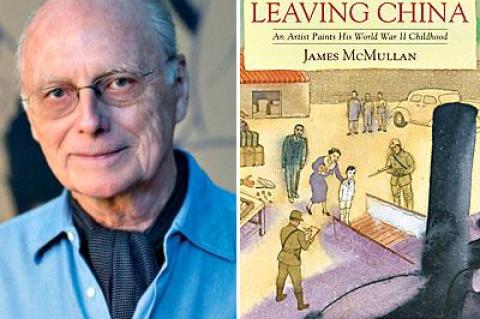 Long Island Books: Boyhood Dreams
Long Island Books: Boyhood Dreams“Leaving China”
James McMullan
Algonquin, $19.95
Before the Japanese bombed Pearl Harbor in 1941 and so entered World War II, war had been raging between China and Japan for four years. In 1937, long-simmering tensions burst into warfare, as the Japanese rapidly occupied large swaths of China. One family’s life in that time and place is revealed to beautiful effect in James McMullan’s graphic memoir, “Leaving China.”
 From Putin to Pussy Riot
From Putin to Pussy RiotRussia’s gone blooey? Call in an expert.
Masha Gessen, a Russian-American who blogs about that country’s culture and politics for The New York Times’s website, will try to make some sense of the turmoil when she speaks at the Stony Brook Southampton campus for the Writers Speak series Wednesday night.
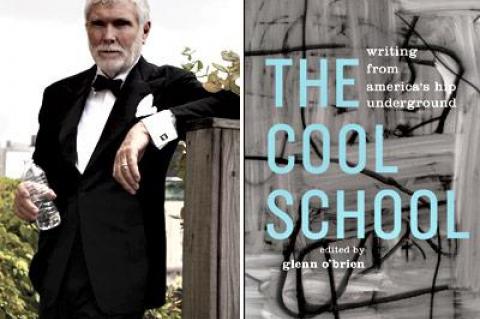 In Search of the Underground
In Search of the Underground“The Cool School”
Edited by Glenn O’Brien
Library of America, $27.95
It’s early in 2014, but I’m already throwing in my bid for most rankling title of the year with “The Cool School: Writing From America’s Hip Underground.” It takes a special kind of hubris to declare oneself an arbiter of cool and hip, never mind the naiveté to ignore the effects of years of irony on these words, mangled as they are now to the point of near incomprehension.
New BookHampton Book Group
The newest of BookHampton’s locations, at 16 Hampton Road in Southampton, is now offering a lunchtime book group. Led by Mary Braverman, late of Rowdy Readers in East Hampton, it meets every other Wednesday at noon at La Parmigiana restaurant, down the street from the bookstore. For this Wednesday, the 26th, the title is “Three Strong Women” by Marie NDiaye.
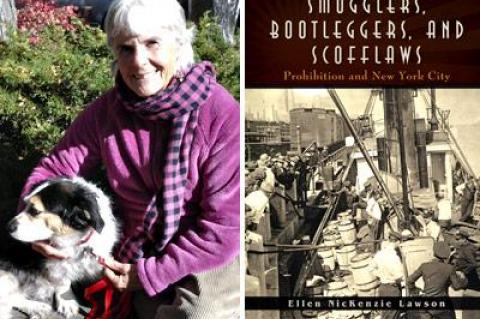 Long Island Books: Rumrunners’ Paradise
Long Island Books: Rumrunners’ Paradise“Smugglers, Bootleggers, and Scofflaws”
Ellen NicKenzie Lawson
Excelsior Editions, $19.95
It was near midnight on Jan. 16, 1920, and at the Park Avenue Hotel in New York, waiters and patrons were dressed in all black and drank liquor from black glasses. Let Ellen NicKenzie Lawson take it from there: “At midnight the ballroom was darkened and a spotlight focused on two couples ceremoniously taking a black bottle from an open coffin in the center of the room, pouring out the last drops, and holding black handkerchiefs to their faces to wipe away tears.”
The Old Schoolhouse in Greenport last held a kindergarten class in 1932. And now for something completely different: On March 15 Robin Becker will read there from “Tiger Heron,” her new collection of poems from the University of Pittsburgh Press with subject matter ranging from her lesbianism to her Russian-Jewish heritage to her upbringing in conformist 1950s America to art history.
 What Matters Most
What Matters Most“A Shed for Wood”
Daniel Thomas Moran
Salmon Poetry, $21.95
“A Shed for Wood” begins with a quote from Henry David Thoreau: “The youth gets together his materials to build a bridge to the moon, or perchance, a palace or temple on the earth, and, at length the middle-aged man concludes to build a wood-shed with them.”
 A Little Encouragement
A Little Encouragement“The Pushcart Prize XXXVIII”
Edited by Bill Henderson
Norton, $19.95
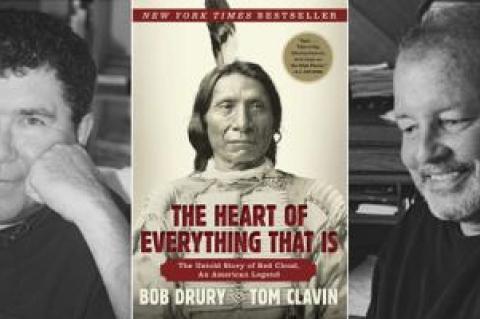 Heaven and Scorched Earth
Heaven and Scorched Earth“The Heart Of
Everything That Is”
Bob Drury and Tom Clavin
Simon and Schuster, $30
“The Heart of Everything That Is: The Untold Story of Red Cloud, an American Legend” is an inspired achievement. The authors Bob Drury and Tom Clavin have dug deep into contemporaneous newspaper stories, eyewitness accounts, military records, and a long-lost autobiography dictated by Red Cloud, “the only American Indian in history to defeat the United States Army in a war, forcing the government to sue for peace on his terms.”
Styron fans, prepare for an insider’s view: Alexandra Styron will be the first to the lectern for the spring’s Writers Speak series at Stony Brook Southampton on Wednesday with “Reading My Father,” her recent book about her relationship with William Styron, who died in 2006. The free event starts at 7 p.m., upstairs in Chancellors Hall’s Radio Lounge. Ms. Styron is the author of a novel, “All the Finest Girls,” and her work has appeared in The New Yorker, Vanity Fair, and elsewhere.
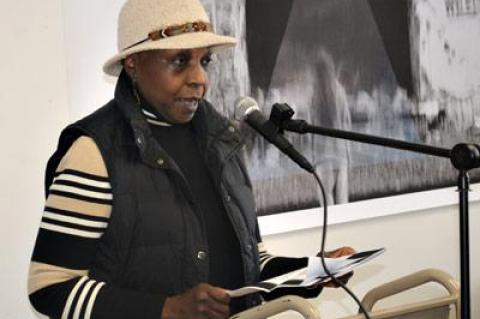 Book Markers: 02.13.14
Book Markers: 02.13.14Chaskey on “Seedtime”
Scott Chaskey, who, depending on your view, looks like Michelangelo’s vision of the Almighty or else a McCoy-hating Hatfield, has a new book out from Rodale, “Seedtime,” which comes with the explanatory subtitle “On the History, Husbandry, Politics, and Promise of Seeds.” Mr. Chaskey — need it be said? — runs Quail Hill Farm in Amagansett, but also, less famously, lives in Sag Harbor, and he’ll remain at home in that village for a reading and book talk at Canio’s on Saturday at 5 p.m.
Elaine’s: One Last Course


